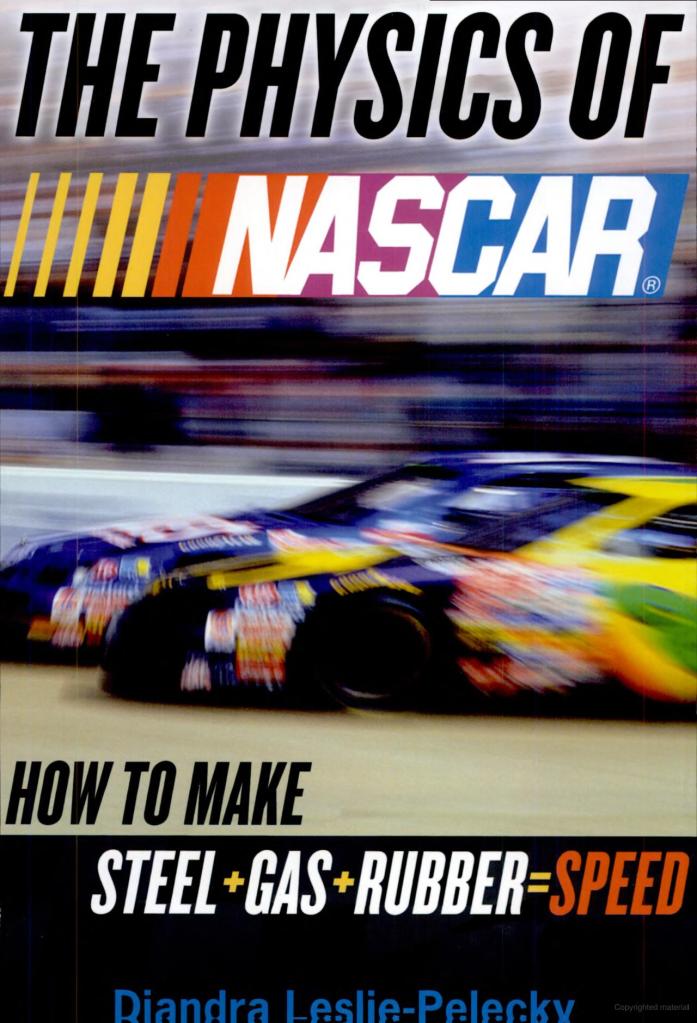Once upon a time, I met Dr. Diandra Leslie-Pelecky author of the book “The Physics of NASCAR” during a meeting of the Pacific Northwest Association for College Physics.
She is a physicist who studies how physics is used to achieve excellence and did some research on the National Association of Stock Car Racing, an enterprise that manages one of the most successful businesses in the USA. In car racing, as in any race, the only goal is to be the first one at the finish line. This very simple objective gets complicated when you see how many elements are part of the race. In an automobile, there are literally thousands of parts and there is “the human element”. The physics applies to the mechanical elements but psychology applies to the human element, and you need both to win.
In her book, Dr. Leslie-Pelecky clearly articulates the physical implications, such as air pressure in tires, friction in bearings, and other interesting physical and chemical principles. Design and planning engineering are critical for the functioning of the operation. There is a lot of knowledge used before the race to prepare the automobile to function at the highest performance. All aspects of the mechanical function of the automobile are interdependent, but interdependence complicates every human endeavor. This complication must be resolved using “design thinking”. Design thinking fundamentally is the knowledge and use of human behavior in the accomplishment of a mission. In car racing, the mission is to win! And a remarkable achievement has been made. Imagine how in Formula 1 racing a pit stop where all four tires are changed can last only 2 to 3 SECONDS! Just let us pause now and count up to 3 seconds and imagine how the four tires are been replaced.
How can this high level of accomplishment be done? The answer is in the human element! People at NASCAR are highly prepared (high rate of Ph. Ds ) and very well compensated. As Dr. Leslie-Pelecky told me the saying there at NASCAR is: “If you pay peanuts, you get monkeys”

